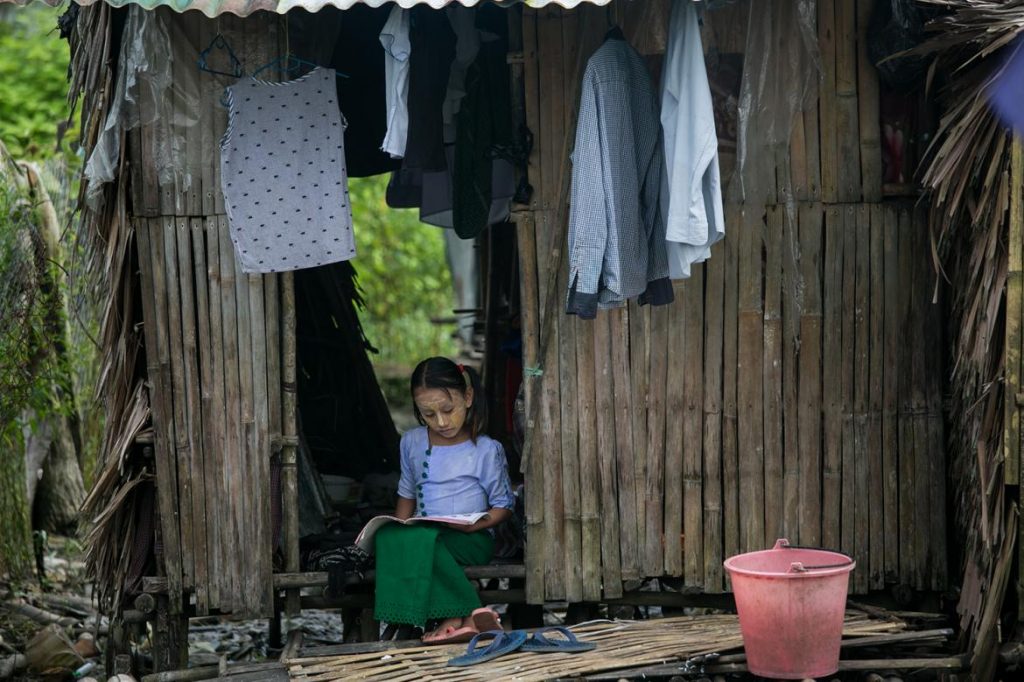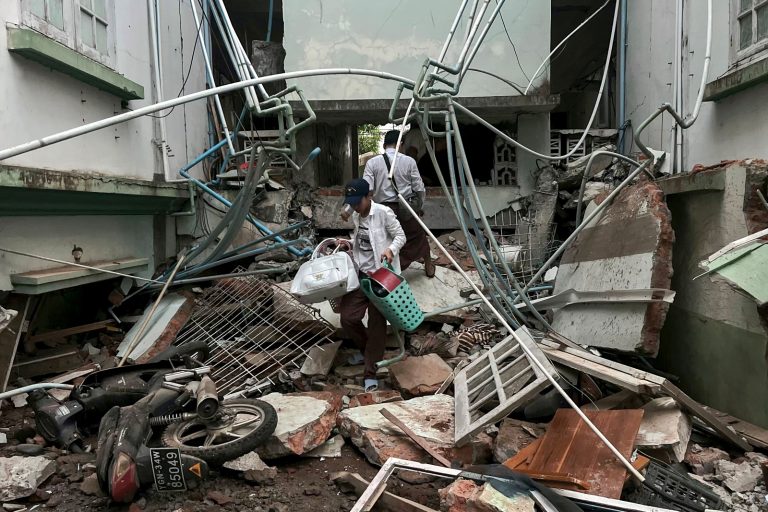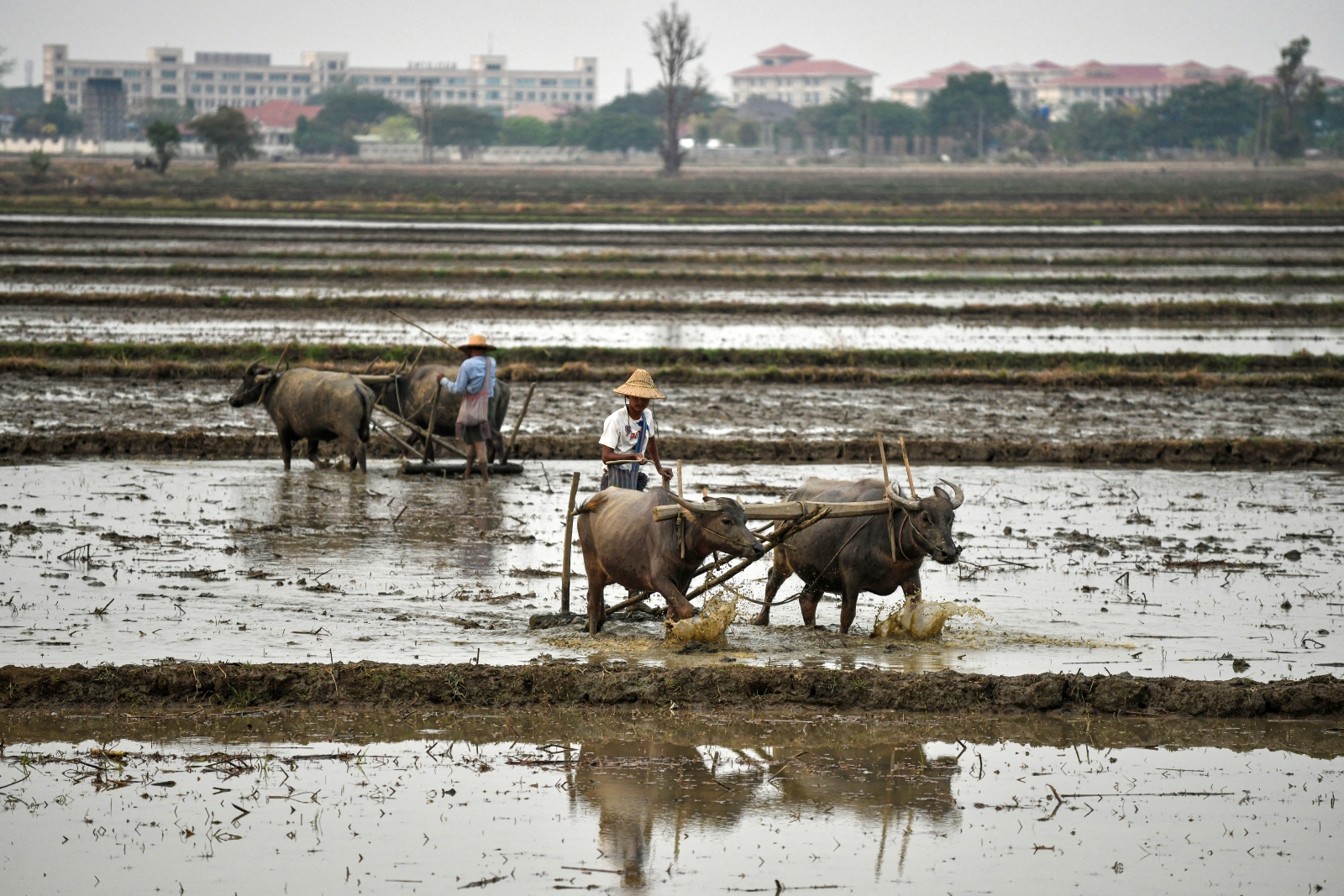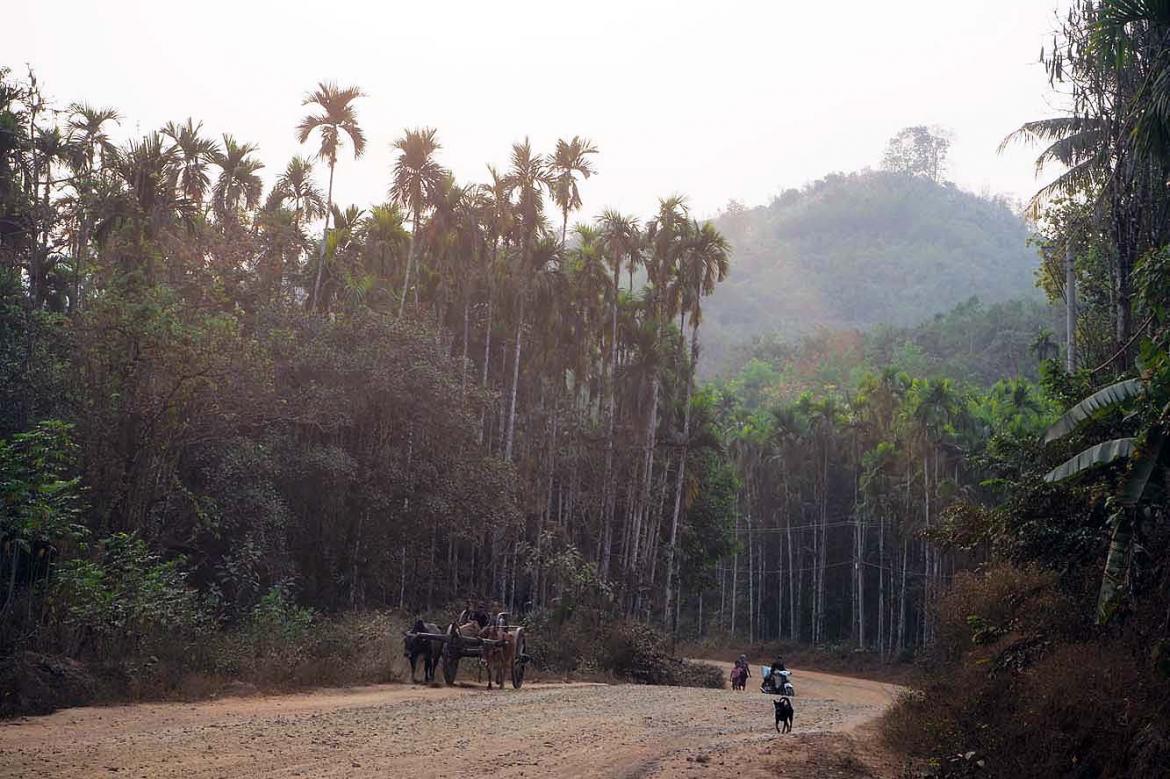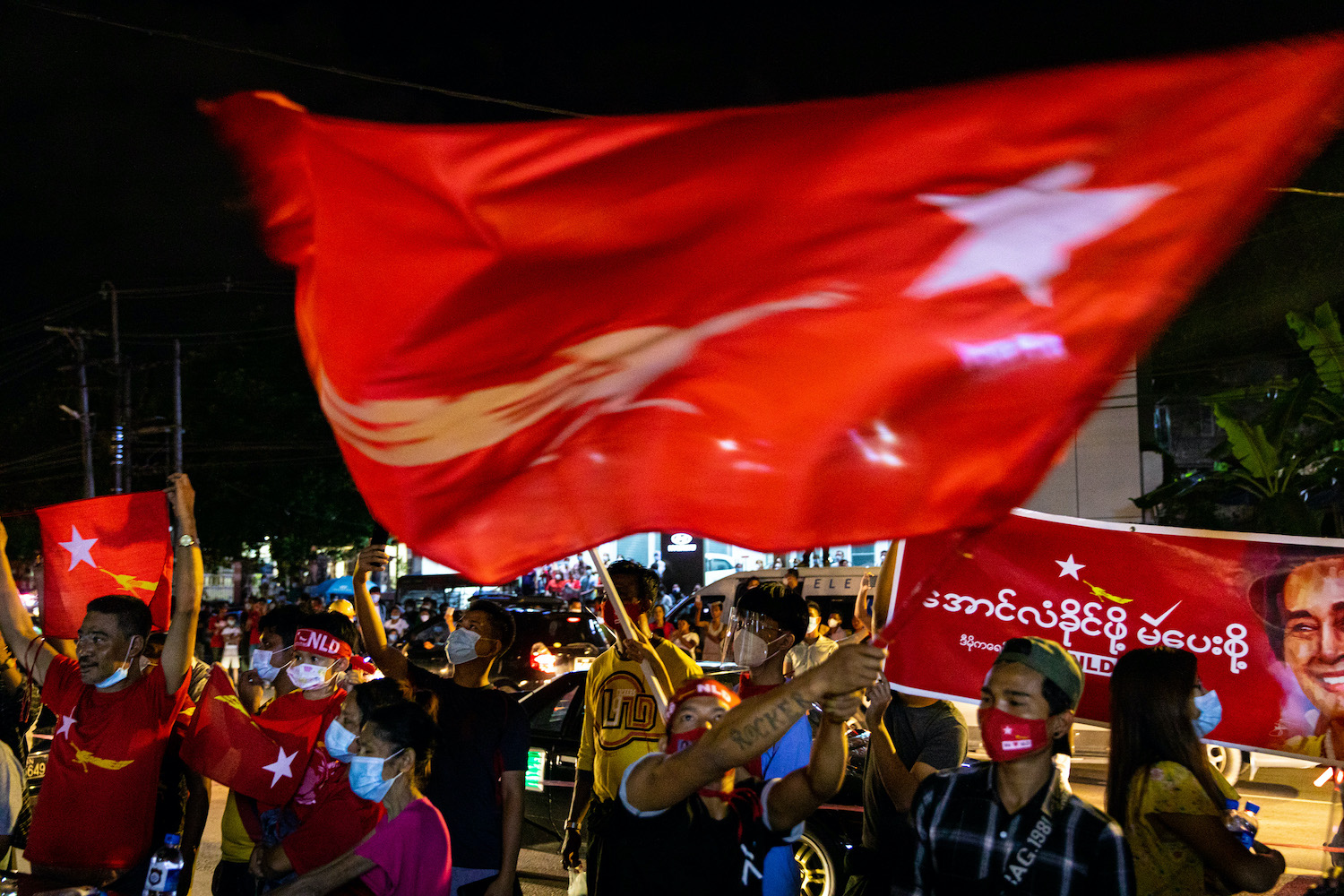By BEN DUNANT | FRONTIER
A nationwide public opinion survey published this week by an American NGO will likely make cheerful reading for the ruling National League for Democracy party.
Despite an economic slowdown, deteriorating foreign relations and increased armed conflict in the borderlands in the years since the NLD came to power in early 2016, 77 percent of the more than 4,000 respondents said the country was “heading in the right direction” and the government’s performance on improving education, furthering the peace process and reducing poverty was considered “good” in each case by more than 85pc of respondents.
The NLD could also read a ringing endorsement of its constitutional reform effort in the survey commissioned by the Washington-based International Republican Institute and conducted by Yangon-based Myanmar Survey Research. Eighty percent of respondents said they supported making it easier to change the military-drafted constitution by nixing the requirement that more than 75pc of parliament must agree to amendments, which gives the 25pc bloc of military lawmakers a veto. The NLD has advocated a phased withdrawal of the military from politics.
However, the new survey, which is the third that IRI has published in Myanmar since 2014, shows an overall less optimistic public than when the government was helmed by the NLD’s adversary, the Union Solidarity and Development Party led by retired generals, at a time of rapid economic growth and new-found political freedoms. In the 2014 survey, 88pc believed the country was heading in the right direction, a figure that dipped to 75pc in the next survey, published in 2017 during the second year of NLD rule, making the recent figure a slight improvement.
Support more independent journalism like this. Sign up to be a Frontier member.
Enumerators went door-to-door, surveying a representative mix of people aged 18 and above for three and a half weeks from June 19, reaching all townships besides two in Kachin State, six in Rakhine – including all those north of the state capital Sittwe, as well as tourist site Mrauk-U – and 13 in Shan State, where conflict and restrictions by the government and non-state armed groups made access difficult.
Despite support for constitutional change, respondents appeared to consider issues of political reform and ethnic conflict less important than the state of the economy and the rollout of hard infrastructure. Half of those who thought Myanmar was headed in the right direction said it was because “roads are being paved and bridges are being built”, with the next most popular justification, “improved economic conditions”, at 18pc. Out of all respondents, the largest number, at 26pc, thought the cost of living was the biggest problem facing Myanmar, while only 10pc cited ethnic conflict. Meanwhile, only 34pc thought insufficient democratic reforms were a “serious problem”, compared to 86pc for illicit drug crime.
Yangon residents had the gloomiest outlook on the state of the economy, with 45pc considering it “bad” while the sunniest outlook came from Chin, where 74pc of respondents said it was “good”.
Mixed messages
While the survey results might buoy the morale of the NLD, they contained mixed messages for ethnic parties. Seventy percent of respondents said they supported “centralised power and decisions [being] made by the Union Government”, against only 22pc who wanted more power granted to states and regions. This suggests there is limited public backing for demands by ethnic parties for a federal restructuring of power. This held even in ethnic nationality states; only in Chin, less than half of respondents supported “centralised” power, at 42pc.
In addition, 53pc of all respondents said they preferred the current arrangement of chief ministers of states and regions being appointed by the president, rather than chosen locally. The local selection of chief ministers is proposed by several ethnic parties and the USDP. However, responses varied considerably between different states and regions. In Rakhine, only 36pc backed the current arrangement for appointing chief ministers, compared to 64pc in Bamar-majority Magway.
Moreover, responses to other questions appeared to contradict the apparent support for keeping power in Nay Pyi Taw. Fifty-one percent supported states and regions having more control over their own natural resources. This support tended to be much stronger in the ethnic nationality states, with 81pc in Chin and 79pc in Rakhine, while most were opposed the idea in the Bamar-majority regions of Bago, Mandalay, Ayeyarwady and Yangon, as well as Nay Pyi Taw Union Territory.
Some results would stretch the credulity of many people in Myanmar – for instance, that 81pc said that they had suffered limited or no “negative impact” from corruption and 95pc that they had not “had to do a favour, give a gift or pay a bribe” in the last 12 months, which sits oddly with the result that 62 thought corruption a “serious problem”.
Also, IRI’s survey results differ in some striking respects from a national opinion survey released in July by Yangon-based civil society group the People’s Alliance for Credible Elections, based on 2,978 face-to-face interviews. In contrast to the overwhelming assessment in the IRI survey that Myanmar is “heading in the right direction”, only 37pc of respondents in PACE’s survey said the same – though a mere 8pc said the country was going in the “wrong direction”, with the rest saying they didn’t know.
Dr Jeremy Liebowitz, IRI’s resident programme coordinator, told Frontier that a difference in methodology could explain the much more emphatic overall verdict in the IRI survey, compared to the large number of “don’t know” responses in the PACE survey, where the balance of opinions was still very positive.
“IRI’s methodology involves repeating a question if an initial response of don’t know is given, while other surveys may have different responses,” he said. “Of those who answered the question, both surveys show an overwhelming majority of people saying that the country was headed in the right direction.”
Sincere responses?
There is very little publicly available polling data in Myanmar, making political analysis difficult and often highly speculative. Polling at scale is expensive – particularly in Myanmar, where it is mostly done door-to-door, in contrast with more developed countries where surveying via telephone is the norm – and both the demand and the willingness of the government to tolerate it is unclear.
Given that the Myanmar public is still largely unfamiliar with polling, the degree to which respondents would trust the intention of any poll and its guarantees of anonymity is open to question. With only limited protections for free speech and the continued reality of intrusive surveillance via plainclothes police officers, some might doubt the sincerity of many of the responses to IRI’s survey, particularly when they involved an assessment of the government’s performance.
To this, Liebowitz said that the “limited number of ‘don’t know’ responses” and refusals to comment in the IRI survey “indicates that people were generally comfortable sharing information. We also ask certain questions that can help us detect whether people who might be afraid to state their views answer questions in a different way.”
He added, “For many questions we can detect trend data, which shows how answers are changing over several rounds, giving us a picture of both reliability of responses and change over time.”
IRI’s main work in Myanmar since 2013 has involved training political party leaders. The organisation says it has trained about 10,000 of them so far in workshops in every state and region, and this will continue in the lead up to the general election next year. A core objective is for parties to tailor their messages more towards what local communities actually want and the issues they care about, rather than what central party offices think the people at large need or should hear. In this respect, IRI thinks the polls it has commissioned complement its political coaching work.
Mr Darin Bielecki, resident programme officer at IRI, told Frontier, “Over the coming months we will present this polling data to registered political parties, party leaders, campaign managers and party volunteers throughout the country during our campaign management and campaign planning workshops.”
“We encourage local political party leaders to look at the national data and ask themselves, ‘Is this what people think in my township?’ and we encourage them to go and find out,” he said, claiming that “progress” had been made in this respect.
“Political parties are going door-to-door and talking about going door-to-door as part of their 2020 planning. They are thinking about ways to connect with constituents and direct voter contact is the best approach.”


